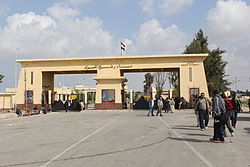UN Experts Warn of Humanitarian Crisis Amid Israeli Military Campaign in Rafah
The situation in Al Mawasi is described as critically lacking in essentials such as food, water, medicine, and electricity.

UN experts have issued a dire warning regarding the ongoing Israeli military operation in eastern Rafah, describing it as a continuation of a seven-month campaign aimed at forcibly displacing and decimating the population of Gaza. The operation, which began with the closure of the Rafah border crossing with Egypt, has severely restricted the flow of humanitarian aid, medical supplies, and fuel necessary for the survival of approximately 1.4 million Palestinians currently sheltering in the area.
The experts have called for an immediate halt to what they describe as a flagrant violation of international humanitarian law by Israel, emphasizing that no evacuation orders issued by Israel in this context are compliant with international standards. “The Rafah invasion must not be seen as a foregone conclusion,” they stated, urging international actors to intervene.
Amidst rising international efforts to broker a ceasefire and halt the violence that has seen significant casualties and destruction, Israeli forces have advanced into the southern enclave of the Gaza Strip, exacerbating an already dire humanitarian crisis. The experts highlighted that the designated 'expanded humanitarian area' in Al Mawasi, where evacuees are being directed, lacks the necessary resources to support an additional influx of displaced persons.
The situation in Al Mawasi is described as critically lacking in essentials such as food, water, medicine, and electricity. Moreover, the area is unsuitable for the vast number of displaced civilians, particularly women and children, who are being forcibly transferred there.
The UN experts also noted that previous violations, including attacks on designated evacuation areas, need to be investigated and accounted for, but immediate action is necessary to prevent new abuses. They have called upon states with influence over Israel to enforce their stated red lines by halting arms flow to Israel and withdrawing investment and political support to end what they described as a disastrous campaign.
The situation in Rafah and the broader region remains tense as international and local entities scramble to address the escalating humanitarian needs and push for a resolution to the ongoing conflict.










